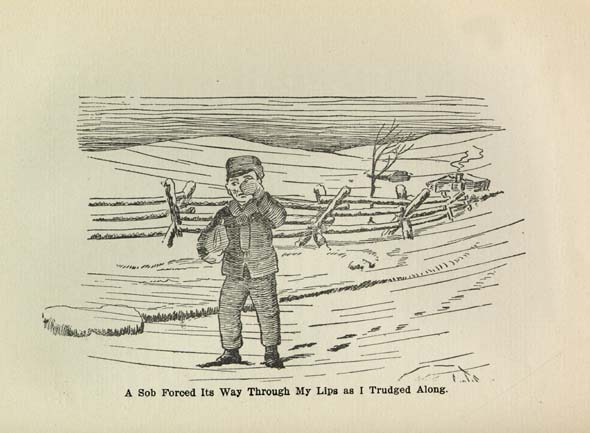There was only one person who kept notes on the Cripple Creek meetings and that was a Francis McTeer. On asking a Robert Vejnar, Archivist, Emory & Henry College and Holston Conference he could not find anything. The only thing he could find on the old Cripple Creek meetings was a document dated September 1823 giving the rules to govern the camp meeting. It is interesting to note that the people of my Pentecostal Holiness church here in SW VA would still occupy the first few pews with the men sitting on the left side (as you walked down the aisle) and the woman on the right side... Just like the Methodist did 250 years before them. I have notes that this camp meeting existed in the 1740's... Not long after Wesley 'Aldersgate Experience' in 1738.
Rules to govern the Cripple Creek Camp meeting beginning on the 12th day of September, 1823.
1) At the first sound of the trumpet in the morning all the people will arise from their tent to dress for church.
2)At the second sound there will be prayer in each tent.
3)At the third sound and every subsequence throughout the day the people will come to the stand.
4)No loud talking is allowed on the campground during the divine service.
5)No person or persons are allowed to stand or walk on the gates at any time during the meeting.
6)No person or persons are allowed to drink any kind of ardent spirits on the campground or any of the fringes or waters belonging to the same.
7)No drunken man or woman are allowed to come on this campground or any of the waters used by the camp.
8)All persons not having a camp or tent to stay in are to leave the campground when the congregation are dismissed or in the night.
9)No person or persons are allowed to occupy the stand except the preachers and the exhorters.
10)The alter is to be occupied by the official characters..
11)The people are not allowed to come in to any camp or camps without an official invitation by the occupant.
12)The people are not allowed to tie their horses to the fence.
13)No cooking on the Sabbath day except tea or coffee.
14)The females are to occupy the seats on the left hand from the stand and the males on the right hand.
15)The females are to enter from the west from the stand and the males from the north.
16)The people are requested to keep their camps illuminated during the night.
17)No merchandise of any kind is allowed on the campground or at any of the waters belonging to the same.
18)Every settler at this meeting is to act as a guard and a committee of safety to guard our privileges.
19)Names of those to guard
20)The committee to guard the alter… Names of those to guard
21)No persons are allowed to hurt any timbers or young growth on any part of the campground.
We the undersigned do agree to bind ourselves to observe the above rules to do what we can to make others do the same.
***This document was signed by 27 people. ***
There was a man named George Clark Rankin who records this account in his "The Story of My Life or More Than a Half Century as I Have Lived It and Seen It Lived" George Clark Rankin. The Story of My Life Or More Than a Half Century As I Have Lived It and Seen It Lived Written by Myself at My Own Suggestion and That of Many Others Who Have Known and Loved Me who was the only other one to have recorded anything of the old Cripple Creek Meetings.
Page 240
The circuit was a large one, comprising seventeen appointments. They were practically scattered all over the county. I preached every other day, and never less than twice and generally three times on Sunday.
I had associated with me that year a young collegemate, Rev. W. B. Stradley. He was a bright, popular fellow, and we managed to give Wytheville regular Sunday preaching. Stradley became a great preacher and died a few years ago while pastor of Trinity Church, Atlanta, Georgia. We were true yokefellows and did a great work on that charge, held fine revivals and had large ingatherings.
The famous Cripple Creek Campground was on that work. They have kept up campmeetings there for more than a hundred years. It is still the great rallying point for the Methodists of all that section. I have never heard such singing and preaching and shouting anywhere else in my life. I met the Rev. John Boring there and heard him preach. He was a well-known preacher in the conference; original, peculiar, strikingly odd, but a great revival preacher.
One morning in the beginning of the service he was to preach and he called the people to prayer. He prayed loud and long and told the Lord just what sort of a meeting we were expecting and really exhorted the people as to their conduct on the grounds. Among other things, he said we wanted no horse- trading and then related that just before kneeling he had seen a man just outside the encampment looking into the mouth of a horse and he made such a peculiar sound as he described the incident that I lifted up my head to look at him, and he was holding his mouth open with his hands just as the man had done in looking into the horse's mouth! But he was a man of power and wrought well for the Church and for humanity.
Page 241
The rarest character I ever met in my life I met at that campmeeting in the person of Rev. Robert Sheffy, known as "Bob" Sheffy. He was recognized all over Southwest Virginia as the most eccentric preacher of that country. He was a local preacher; crude, illiterate, queer and the oddest specimen known among preachers. But he was saintly in his life, devout in his experience and a man of unbounded faith. He wandered hither and thither over that section attending meetings, holding revivals and living among the people. He was great in prayer, and Cripple Creek campground was not complete without "Bob" Sheffy. They wanted him there to pray and work in the altar.
He was wonderful with penitents. And he was great in following up the sermon with his exhortations and appeals. He would sometimes spend nearly the whole night in the straw with mourners; and now and then if the meeting lagged he would go out on the mountain and spend the entire night in prayer, and the next morning he would come rushing into the service with his face all aglow shouting at the top of his voice. And then the meeting always broke loose with a floodtide.
He could say the oddest things, hold the most unique interviews with God, break forth in the most unexpected spasms of praise, use the homeliest illustrations, do the funniest things and go through with the most grotesque performances of any man born of woman.
It was just "Bob" Sheffy, and nobody thought anything of what he did and said, except to let him have his own way and do exactly as he pleased. In anybody else it would not have been tolerated for a moment. In fact, he acted more like a crazy man than otherwise, but he was wonderful in a meeting. He would stir the people, crowd the mourner's bench with crying penitents and have genuine conversions by the score. I doubt if any man in all that conference has as many souls to his credit in the Lamb's Book of Life as old "Bob" Sheffy.
It is interesting the premium these people put in their exhorters. I have listened to Joel Osteen encourage his men's group to be 'encouragers' ... Not far away from exhortation!
Rules to govern the Cripple Creek Camp meeting beginning on the 12th day of September, 1823.
1) At the first sound of the trumpet in the morning all the people will arise from their tent to dress for church.
2)At the second sound there will be prayer in each tent.
3)At the third sound and every subsequence throughout the day the people will come to the stand.
4)No loud talking is allowed on the campground during the divine service.
5)No person or persons are allowed to stand or walk on the gates at any time during the meeting.
6)No person or persons are allowed to drink any kind of ardent spirits on the campground or any of the fringes or waters belonging to the same.
7)No drunken man or woman are allowed to come on this campground or any of the waters used by the camp.
8)All persons not having a camp or tent to stay in are to leave the campground when the congregation are dismissed or in the night.
9)No person or persons are allowed to occupy the stand except the preachers and the exhorters.
10)The alter is to be occupied by the official characters..
11)The people are not allowed to come in to any camp or camps without an official invitation by the occupant.
12)The people are not allowed to tie their horses to the fence.
13)No cooking on the Sabbath day except tea or coffee.
14)The females are to occupy the seats on the left hand from the stand and the males on the right hand.
15)The females are to enter from the west from the stand and the males from the north.
16)The people are requested to keep their camps illuminated during the night.
17)No merchandise of any kind is allowed on the campground or at any of the waters belonging to the same.
18)Every settler at this meeting is to act as a guard and a committee of safety to guard our privileges.
19)Names of those to guard
20)The committee to guard the alter… Names of those to guard
21)No persons are allowed to hurt any timbers or young growth on any part of the campground.
We the undersigned do agree to bind ourselves to observe the above rules to do what we can to make others do the same.
***This document was signed by 27 people. ***
There was a man named George Clark Rankin who records this account in his "The Story of My Life or More Than a Half Century as I Have Lived It and Seen It Lived" George Clark Rankin. The Story of My Life Or More Than a Half Century As I Have Lived It and Seen It Lived Written by Myself at My Own Suggestion and That of Many Others Who Have Known and Loved Me who was the only other one to have recorded anything of the old Cripple Creek Meetings.
Page 240
The circuit was a large one, comprising seventeen appointments. They were practically scattered all over the county. I preached every other day, and never less than twice and generally three times on Sunday.
I had associated with me that year a young collegemate, Rev. W. B. Stradley. He was a bright, popular fellow, and we managed to give Wytheville regular Sunday preaching. Stradley became a great preacher and died a few years ago while pastor of Trinity Church, Atlanta, Georgia. We were true yokefellows and did a great work on that charge, held fine revivals and had large ingatherings.
The famous Cripple Creek Campground was on that work. They have kept up campmeetings there for more than a hundred years. It is still the great rallying point for the Methodists of all that section. I have never heard such singing and preaching and shouting anywhere else in my life. I met the Rev. John Boring there and heard him preach. He was a well-known preacher in the conference; original, peculiar, strikingly odd, but a great revival preacher.
One morning in the beginning of the service he was to preach and he called the people to prayer. He prayed loud and long and told the Lord just what sort of a meeting we were expecting and really exhorted the people as to their conduct on the grounds. Among other things, he said we wanted no horse- trading and then related that just before kneeling he had seen a man just outside the encampment looking into the mouth of a horse and he made such a peculiar sound as he described the incident that I lifted up my head to look at him, and he was holding his mouth open with his hands just as the man had done in looking into the horse's mouth! But he was a man of power and wrought well for the Church and for humanity.
Page 241
The rarest character I ever met in my life I met at that campmeeting in the person of Rev. Robert Sheffy, known as "Bob" Sheffy. He was recognized all over Southwest Virginia as the most eccentric preacher of that country. He was a local preacher; crude, illiterate, queer and the oddest specimen known among preachers. But he was saintly in his life, devout in his experience and a man of unbounded faith. He wandered hither and thither over that section attending meetings, holding revivals and living among the people. He was great in prayer, and Cripple Creek campground was not complete without "Bob" Sheffy. They wanted him there to pray and work in the altar.
He was wonderful with penitents. And he was great in following up the sermon with his exhortations and appeals. He would sometimes spend nearly the whole night in the straw with mourners; and now and then if the meeting lagged he would go out on the mountain and spend the entire night in prayer, and the next morning he would come rushing into the service with his face all aglow shouting at the top of his voice. And then the meeting always broke loose with a floodtide.
He could say the oddest things, hold the most unique interviews with God, break forth in the most unexpected spasms of praise, use the homeliest illustrations, do the funniest things and go through with the most grotesque performances of any man born of woman.
It was just "Bob" Sheffy, and nobody thought anything of what he did and said, except to let him have his own way and do exactly as he pleased. In anybody else it would not have been tolerated for a moment. In fact, he acted more like a crazy man than otherwise, but he was wonderful in a meeting. He would stir the people, crowd the mourner's bench with crying penitents and have genuine conversions by the score. I doubt if any man in all that conference has as many souls to his credit in the Lamb's Book of Life as old "Bob" Sheffy.
It is interesting the premium these people put in their exhorters. I have listened to Joel Osteen encourage his men's group to be 'encouragers' ... Not far away from exhortation!
Last edited:
Upvote
0

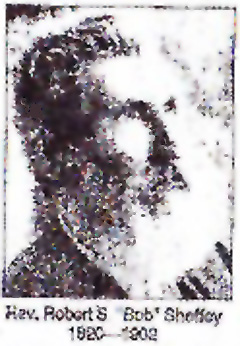
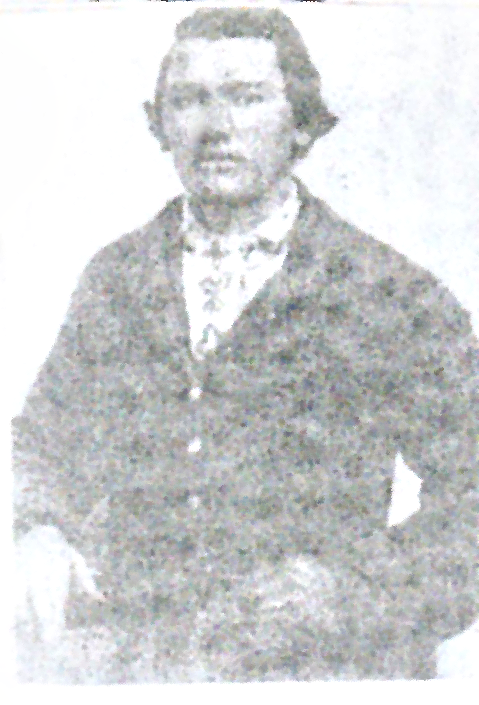
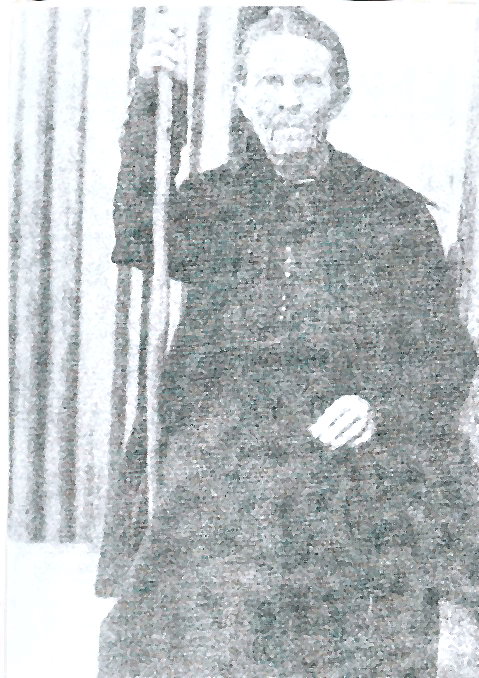
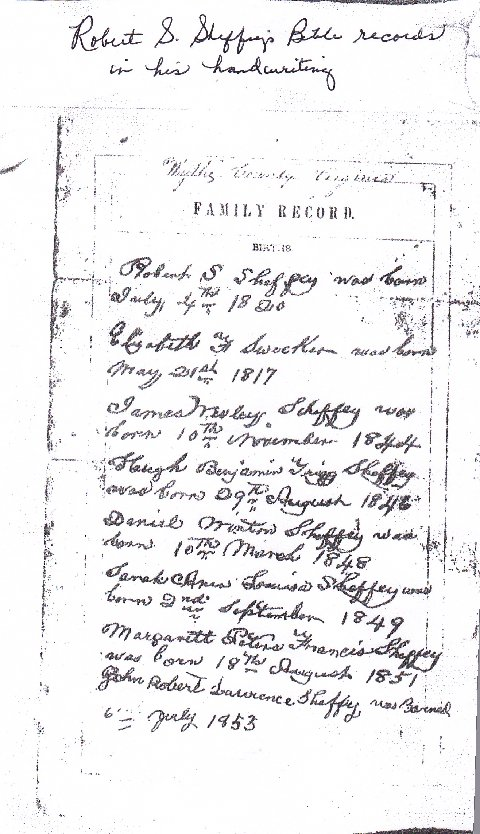
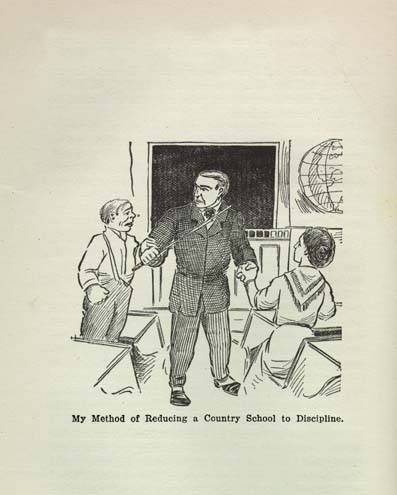
 The Life of George Clark Rankin and beginning on page 239...
The Life of George Clark Rankin and beginning on page 239...